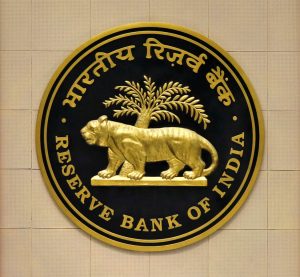 Introduction:
Introduction:
The Reserve Bank of India (RBI) has implemented various measures to regulate and facilitate cross-border fund transfers. One such initiative is the Liberalised Remittance Scheme (LRS), which enables resident individuals to remit funds abroad for multiple purposes. The LRS plays a crucial role in promoting capital account convertibility and liberalizing foreign exchange controls. This article provides a comprehensive overview of the LRS introduced by the RBI.
Background:
Introduced in 2004 to replace the previous Foreign Exchange Management Act (FEMA) regulations, the Liberalised Remittance Scheme allows resident individuals to remit a specific amount of money abroad for purposes like education, travel, medical treatment, and investment in foreign securities. This scheme simplifies and streamlines the process of outward remittances for individuals.
Key Features of the Liberalized Remittance Scheme:
Eligibility
The LRS applies to all resident individuals, including minors, who have fulfilled the Know Your Customer (KYC) requirements. It is not available to corporates, partnership firms, HUFs (Hindu Undivided Families), and Trusts.
Remittance Limit
Under the LRS, individuals can remit funds up to a specific limit per financial year. The limit is periodically reviewed by the RBI and is subject to change. As of the latest update (September 2021), the limit stood at USD 250,000 per financial year. Importantly, this limit is applicable per person rather than per bank account.
Consult CA Arun Tiwari for more info at 📞 8080088288 or cs@aktassociates.com
Permissible Transactions
The LRS allows remittances for various purposes, such as education expenses, medical treatment abroad, travel expenses, investment in real estate abroad, purchase of shares, debt instruments, etc. However, the scheme strictly prohibits the use of funds for activities like gambling, lottery tickets, margin trading, and other activities specified by the RBI.
Reporting Requirements
All transactions conducted under the Liberalised Remittance Scheme must be reported to the individual’s authorized dealer (usually a bank) within a specified timeframe. This reporting mechanism helps the RBI effectively monitor and regulate outward remittances.
Tax Implications
Funds remitted under the LRS are considered permissible capital account transactions. However, any income generated from such investments, such as dividends or capital gains, may be subject to tax as per the applicable provisions of the Income Tax Act.
Benefits of the Liberalised Remittance Scheme:
Enhanced Flexibility
The LRS provides resident individuals with greater flexibility in managing their funds abroad. It simplifies the process of remitting money for various purposes and reduces the need for seeking specific permissions from regulatory authorities.
Diversification of Investments
This scheme enables individuals to explore and invest in foreign markets, diversifying their investment portfolios beyond domestic boundaries. It offers potential benefits such as exposure to global opportunities and risk mitigation.
 Facilitating Education and Medical Expenses
Facilitating Education and Medical Expenses
The LRS plays a vital role in supporting individuals pursuing higher education abroad or seeking medical treatment outside India. It ensures that funds can be easily transferred for these critical purposes without unnecessary restrictions.
Encouraging Foreign Exchange Earnings
By permitting outward remittances for specific purposes, the scheme promotes the generation of foreign exchange earnings for the country. This inflow of foreign currency contributes to economic growth and stability.
Conclusion:
The Liberalised Remittance Scheme introduced by the RBI represents a significant milestone in liberalizing foreign exchange controls and facilitating the movement of funds for resident individuals. It empowers individuals with greater flexibility, simplifies the process of outward remittances, and opens up avenues for investments, education, medical treatment, and other permissible transactions abroad. As the LRS continues to evolve, individuals should stay updated with the latest guidelines to maximize its benefits while ensuring compliance with the RBI’s regulations.


